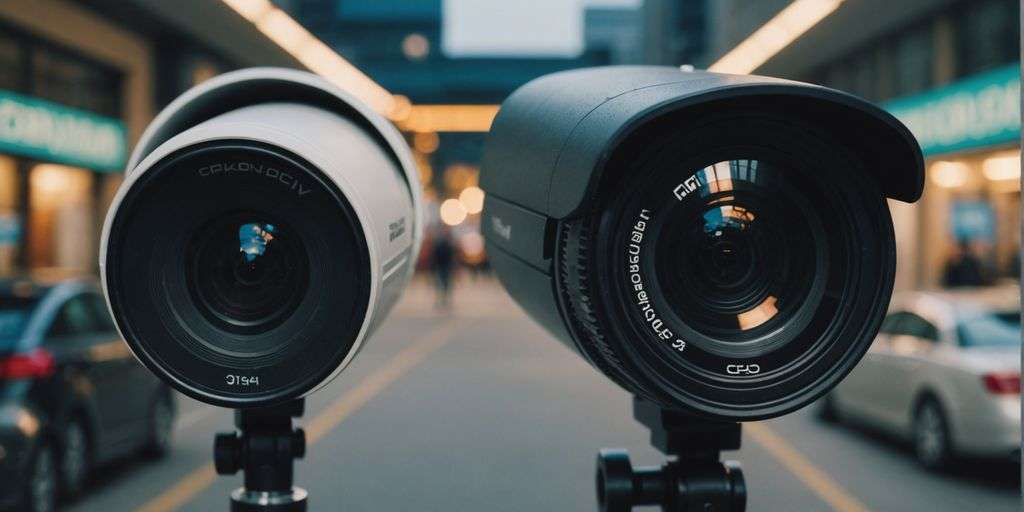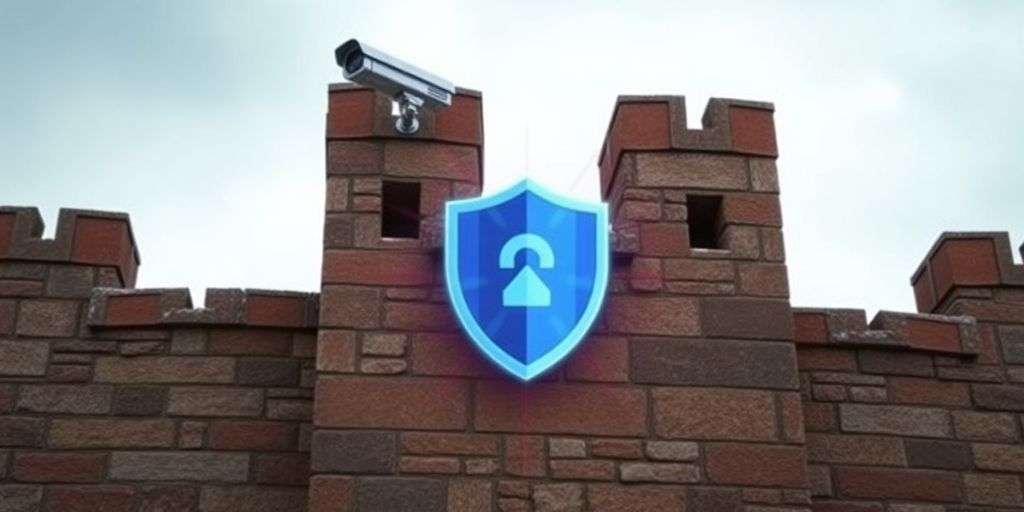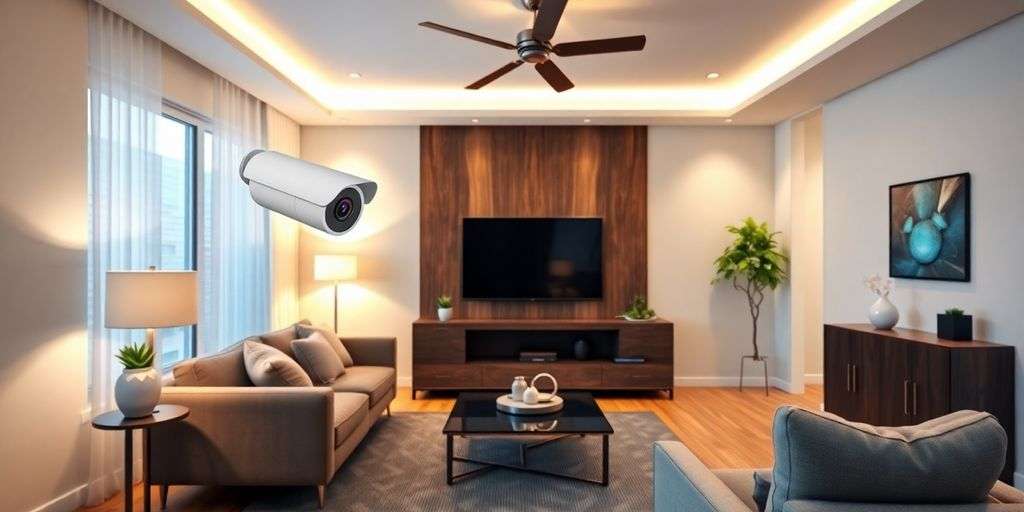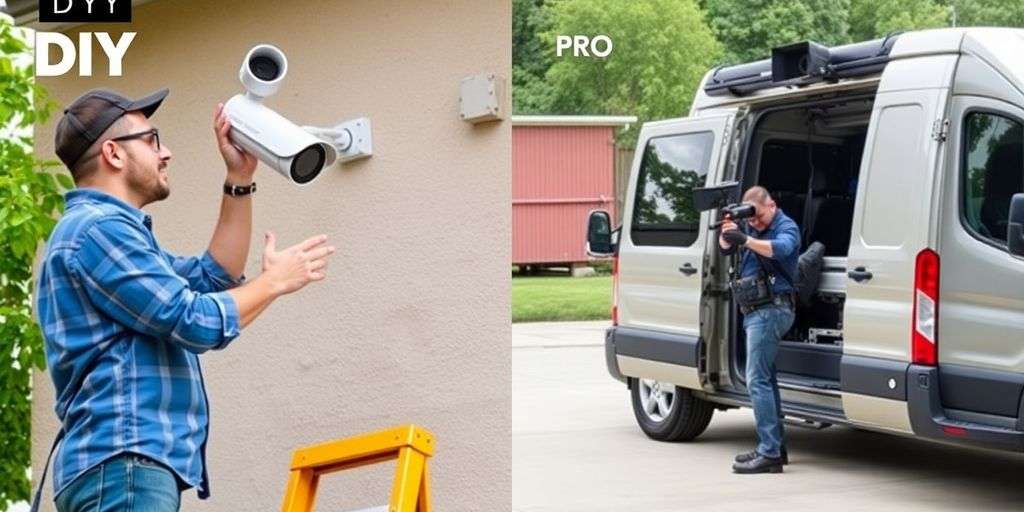Understanding Analogue CCTV Cameras

How Analogue Cameras Work
Analogue CCTV cameras capture video images using a sensor. The resolution of this sensor is typically limited to 720×575 pixels. This means the image is 720 pixels wide and 575 pixels tall. The video signal is then sent through a single coaxial cable to a recording or display device. The signal complies with broadcast television standards, making it easy to use with off-the-shelf products.
Limitations of Analogue Systems
Analogue systems are bound by the limitations of broadcast TV standards. This restricts the resolution and detail that the cameras can capture. For tasks requiring high detail, like recognising faces or licence plates, analogue systems may fall short. Additionally, the technology is over 50 years old, which means it lacks the advanced features found in modern systems.
Common Uses for Analogue CCTV
Despite their limitations, analogue CCTV cameras are still widely used. They are often found in:
- Small businesses
- Residential properties
- Older buildings with existing coaxial cabling
These systems are generally more affordable and easier to install, making them a popular choice for basic surveillance needs.
Analogue CCTV systems offer a cost-effective solution for basic security needs, but they may not meet the demands of high-detail surveillance.
Exploring IP Camera Technology
Advantages of IP Cameras
IP cameras have revolutionised the CCTV market with their advanced features. One major benefit is their ability to provide high-resolution images, far surpassing traditional analogue cameras. They also offer remote access, allowing users to view live footage from anywhere using a web browser. This flexibility makes them ideal for modern security needs.
Integration with Modern Technologies
Modern IP cameras come equipped with various interfaces to extract video, including built-in web servers. This means you can connect to the camera using any browser and view videos directly. Additionally, IP cameras can easily integrate with other security systems, enhancing overall functionality and performance.
Scalability and Flexibility
IP cameras are highly scalable, making them suitable for both small and large installations. You can easily add more cameras to the system without significant changes to the existing setup. This scalability ensures that your security system can grow with your needs, providing long-term flexibility.
Part of the planning process is a pilot installation of IP cameras to gauge their suitability for the intended deployment. From this pilot, more specific data points can be determined.
Comparing Image Quality and Performance
Resolution Differences
When comparing analogue and IP cameras, resolution is a key factor. Analogue cameras typically offer lower resolution, which can result in grainy images. In contrast, IP cameras provide higher resolution, delivering clearer and more detailed images. Higher resolution can significantly enhance the effectiveness of surveillance by capturing finer details, such as facial features or licence plates.
Impact on Surveillance Effectiveness
The quality of the lens and the camera’s ability to perform in low-light conditions also play crucial roles. A high-resolution sensor is not enough if the lens is of poor quality or if the camera struggles in dim lighting. For instance, a lens that is soft in the corners can offset the increased sensor resolution. Therefore, it’s essential to consider these factors to ensure comprehensive security coverage.
Future-Proofing Your Security System
Investing in IP cameras can be a smart move for future-proofing your security system. These cameras are more adaptable to new technologies and can be easily upgraded. This flexibility ensures that your system remains effective as technology evolves. Additionally, IP cameras often come with advanced features like motion detection and remote access, making them a versatile choice for modern security needs.
A security guru offers professional CCTV installation services for homes and businesses. Expert camera selection and installation ensure comprehensive security coverage and peace of mind. Call 012 000 8616.
Choosing the Right System for Your Needs
Cost Considerations
When selecting a CCTV system, budget is a crucial factor. Analogue systems are generally more affordable upfront, making them suitable for smaller businesses or homes. However, IP cameras, while more expensive initially, offer long-term savings through advanced features and lower maintenance costs.
Installation and Maintenance
Analogue systems are often easier to install, especially for smaller setups. They require less technical know-how and can be up and running quickly. On the other hand, IP systems may need more expertise for installation but offer easier maintenance and remote troubleshooting.
Security and Privacy Concerns
Security is paramount when choosing a surveillance system. Analogue systems are less vulnerable to hacking but offer limited features. IP cameras provide advanced security options like encryption and remote access but require robust cybersecurity measures to protect against potential threats.
Choosing the right CCTV system involves balancing cost, ease of installation, and security features to meet your specific needs.
Conclusion
In wrapping up, it’s clear that both analogue and IP CCTV systems have their own strengths and weaknesses. Analogue systems, with their simplicity and lower cost, are still a viable option for smaller setups. However, IP cameras bring a host of advantages, including better image quality, scalability, and advanced features like remote access and AI integration. As technology continues to evolve, IP systems are becoming more mainstream, offering flexibility and future-proofing that analogue systems simply can’t match. Whether you choose analogue or IP, understanding the differences will help you make the best decision for your security needs.
Frequently Asked Questions
What is the main difference between analogue and IP cameras?
Analogue cameras use older technology to send video signals over coaxial cables, while IP cameras use modern networking to send data over the internet. This difference allows IP cameras to offer better image quality and more features.
Are IP cameras more expensive than analogue cameras?
Yes, IP cameras generally cost more upfront. However, they offer better image quality and more advanced features, which can make them more cost-effective in the long run.
Can I mix analogue and IP cameras in the same system?
Yes, you can create a hybrid system that uses both analogue and IP cameras. This allows you to upgrade your system gradually without replacing all your existing equipment at once.





